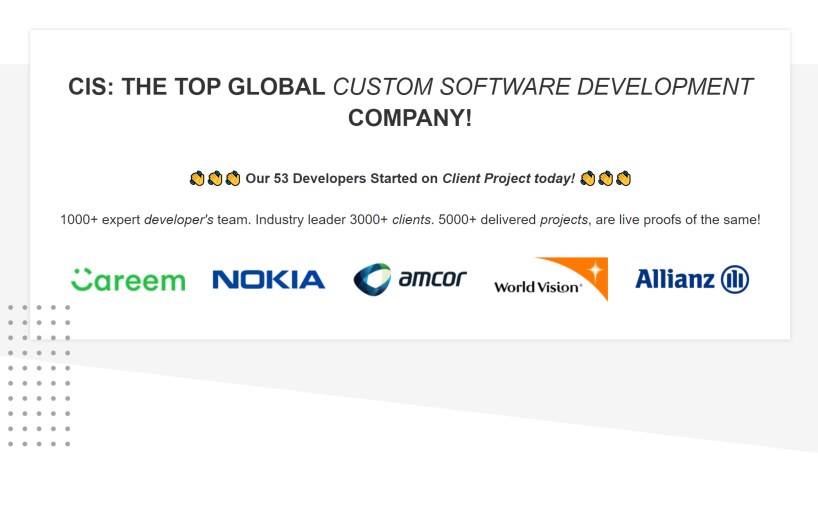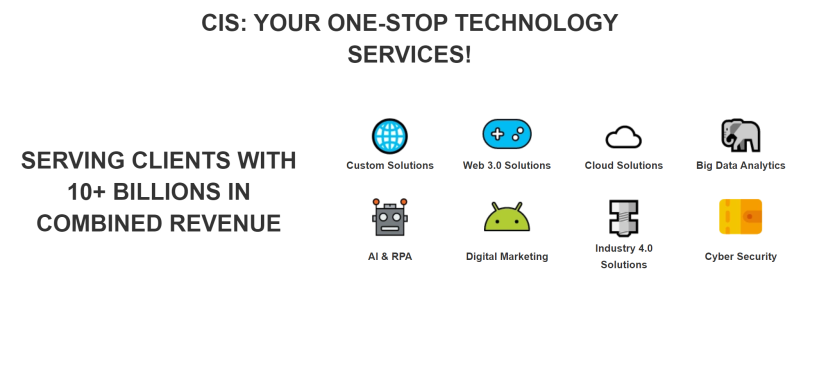Maximizing ROI: The Cost and Benefits of Adopting Oracle Erp For Supply Chain for Your Business
- Oracle ERP for supply chain - Detailed Analysis by Enterprise Solutions Experts
Request A Free Consultation - Why Use Oracle ERP For Supply Chain



Why Mid-size Companies and Enterprises needs Oracle ERP For Supply Chain:
Oracle ERP for supply chain helps mid-size companies and enterprises manage their end-to-end supply chain operations more efficiently and effectively. It provides comprehensive capabilities to support the full scope of a company's global supply chain, from planning, sourcing and procurement through production, inventory management and fulfillment. Oracle's ERP solution enables organizations to optimize their resources by streamlining processes such as demand forecasting, order management, product lifecycle management (PLM), transportation logistics and financial accounting. Additionally, its integrated analytics provide real-time visibility into operations which can be used to identify cost savings opportunities or other areas for improvement. By leveraging Oracle ERP for supply chain solutions, mid-size companies and enterprises can reduce costs while increasing customer satisfaction levels.
Benefits of using Oracle ERP For Supply Chain in Mid-size companies and Enterprises:
1. Streamlined processes:
Oracle ERP for supply chain helps mid-size companies and enterprises streamline their business processes, making them more efficient and cost-effective. It eliminates manual data entry and paper-based processes, helping to reduce errors while improving accuracy.
2. Improved visibility:
Oracle ERP for supply chain provides a comprehensive view of the entire supply chain process from end to end, allowing managers to identify any problems or delays quickly so they can take corrective action in a timely manner. This improved visibility also makes it easier for businesses to forecast customer demand accurately and plan accordingly.
3. Automated workflows:
The automated workflow capabilities of Oracle ERP for supply chain make it easy to manage complex tasks such as order processing, inventory management, warehouse operations, shipping/receiving, etc., with minimal effort on the part of personnel involved in these activities. This helps save time and money while ensuring that all tasks are completed efficiently and correctly every time.
4 Cost savings:
By automating many of the mundane tasks associated with managing a supply chain process using an enterprise resource planning system like Oracle ERP for Supply Chain Management (SCM), mid-size companies can realize significant cost savings over time by eliminating labor costs associated with manual data entry or other administrative functions related to SCM operationsDetailed Features of Oracle ERP For Supply Chain for Mid-size companies and Enterprises:
1. Automated Demand Planning:
Oracle ERP for supply chain includes automated demand planning capabilities that enable mid-size companies and enterprises to forecast customer demand accurately and optimize inventory levels in response to changing market conditions.
2. Supply Chain Visibility:
Oracle ERP for supply chain provides visibility into the entire supply chain, from raw materials sourcing through finished goods delivery, allowing users to monitor all stages of the process in real time.
3. Advanced Logistics Management:
This solution offers advanced logistics management features such as route optimization, order fulfillment tracking, shipment scheduling, and more to ensure on-time deliveries with minimal delays or disruptions.
4. Warehouse Management System (WMS):
The integrated WMS helps streamline warehouse operations by providing tools for managing stock levels across multiple warehouses, optimizing space utilization, improving picking accuracy and efficiency, etc., while also ensuring compliance with industry regulations like GS1 standards.
5. Order Management & Fulfillment:
Oracle's order management system enables mid-size companies and enterprises to manage orders efficiently throughout their entire lifecycle-from creation through payment processing-while its integrated fulfillment solutions provide support for both B2B and B2C customers by automating processes like shipping label generation or returns handling..Who are the Users of Oracle ERP For Supply Chain:
The customers using Oracle ERP for supply chain include: Walmart, Home Depot, Nestle, Unilever, Coca-Cola, PepsiCo, Johnson & Johnson, Kraft Heinz Company, Kellogg's and General Mills.
How to ensure Data Security and Compliance with Oracle ERP For Supply Chain:
1. Implement Data Encryption:
Use encryption to protect data stored in Oracle ERP systems and ensure that only authorized personnel can access it. This will help prevent unauthorized access, modification, or destruction of sensitive information.
2. Establish Access Controls:
Put procedures in place to limit user access based on roles and responsibilities within the organization. This will help reduce the risk of unauthorized users accessing confidential data stored within Oracle ERP systems.
3. Monitor User Activity:
Track user logins and activity to detect suspicious behavior or potential security breaches quickly and efficiently. Regularly review audit logs for any unusual activities or attempts at unauthorized access by external parties or internal staff members, then take appropriate action as needed.
4. Perform Regular Vulnerability Assessments:
Identify system vulnerabilities before they become an issue by performing regular vulnerability assessments using automated tools such as Nessus, QualysGuard, AppDetectivePro etc., which are designed specifically for this purpose..
5 .Enforce Strong Password Policies:
Ensure all employees use strong passwords with a combination of letters (upper-case & lower-case), numbers & special characters when logging into the system; also regularly change passwords every few months to maintain their strength against hackers attempting brute force attacks on your system's authentication mechanism(s).How Oracle ERP For Supply Chain can increase organization Productivity, Agility, and Profitability:
Oracle ERP for supply chain can increase organization productivity, agility, and profitability by streamlining the entire supply chain process. This includes automating the procurement of inventory, tracking shipments in real-time, optimizing warehouse operations, and providing visibility into inventory levels. Additionally, Oracle's integrated analytics capabilities enable organizations to analyze their data and identify areas where they can make improvements that will result in increased efficiency and cost savings. Finally, Oracle's predictive forecasting capabilities help businesses plan ahead for future demand so they can better manage their resources and optimize operations.
How to Measure KPIs and increase Benefits of implementing Oracle ERP For Supply Chain in Mid-size companies and Enterprises:
1. Set KPIs:
The first step is to set appropriate KPIs that will measure the success of implementing Oracle ERP for supply chain in mid-size companies and enterprises. These could include metrics such as cost savings, improved customer service levels, increased inventory accuracy, reduced lead times, etc.
2. Monitor Performance:
Once the KPIs have been set up, it is important to monitor their performance over time in order to determine whether or not Oracle ERP for supply chain is providing benefits to the organization. This can be done through regular reviews with stakeholders and by tracking key data points related to each KPI on a regular basis.
3. Analyze Results:
After monitoring the performance of each KPI over time, it is important to analyze these results in order to understand where improvements can be made and what areas are performing well already due to the implementation of Oracle ERP for supply chain. It may also be beneficial at this stage to compare your company's performance against competitors or industry benchmarks in order gain an even better understanding of how successful you are being with your implementation efforts.
4 Increase Benefits:
Finally, once you have identified areas where improvement can be made based upon analyzing your current results from using Oracle ERP for supply chain it is important that steps are taken towards increasing the overall benefits provided by its use within your organization; this could involve further training staff members on how best utilize all features available or investing additional resources into making sure processes are running smoothly and efficiently across departments utilizing Oracle ERP for supply chain technologyHow Oracle ERP For Supply Chain can increase Employee Morale in your organization:
Oracle ERP for supply chain can increase organization employee morale by providing employees with improved visibility into the supply chain. This allows them to better understand how their efforts are contributing to the success of the business, which can lead to increased motivation and job satisfaction. Additionally, Oracle ERP for supply chain provides a streamlined workflow that reduces manual data entry and other tedious tasks, freeing up more time for employees to focus on meaningful work. Finally, it helps organizations become more efficient in their operations, leading to cost savings that can be used towards improving employee benefits or creating a positive work environment.
How Oracle ERP For Supply Chain is Better than its Competitors:
Oracle ERP for supply chain is better than its competitors because it offers a comprehensive suite of integrated applications designed to help businesses manage their entire end-to-end supply chain processes. Oracle ERP provides advanced analytics and reporting capabilities, enabling organizations to gain greater visibility into their operations and make more informed decisions. Additionally, Oracle ERP integrates with other business systems such as customer relationship management (CRM) and enterprise resource planning (ERP), allowing companies to leverage existing investments in these solutions while still taking advantage of the latest innovations in supply chain technology. Finally, Oracle's cloud platform allows customers to access the full range of features from any location at any time, providing greater flexibility and scalability than traditional on-premise solutions.
Cost to Develop & Implemention of Oracle ERP For Supply Chain:
The cost of developing and deploying an Oracle ERP for supply chain will depend on the size, complexity, and scope of the project. Generally speaking, a basic implementation can range anywhere from $50K to over $1M depending on customization needs. Additionally, ongoing support costs should also be factored in when budgeting for such a project.
Why outsourcing implementation services for Oracle ERP For Supply Chain is better for Mid-size companies and Enterprises:
Outsourcing implementation services for Oracle ERP for supply chain can be beneficial to mid-size companies and enterprises because it allows them to focus on their core business operations while leveraging the expertise of experienced professionals who specialize in implementing Oracle ERP. This helps businesses save time, money, and resources by having a team that is knowledgeable about the software, its capabilities, and how best to integrate it into their existing systems. Additionally, outsourcing implementation services can help ensure that all necessary steps are taken during the process so that everything runs smoothly and efficiently.


